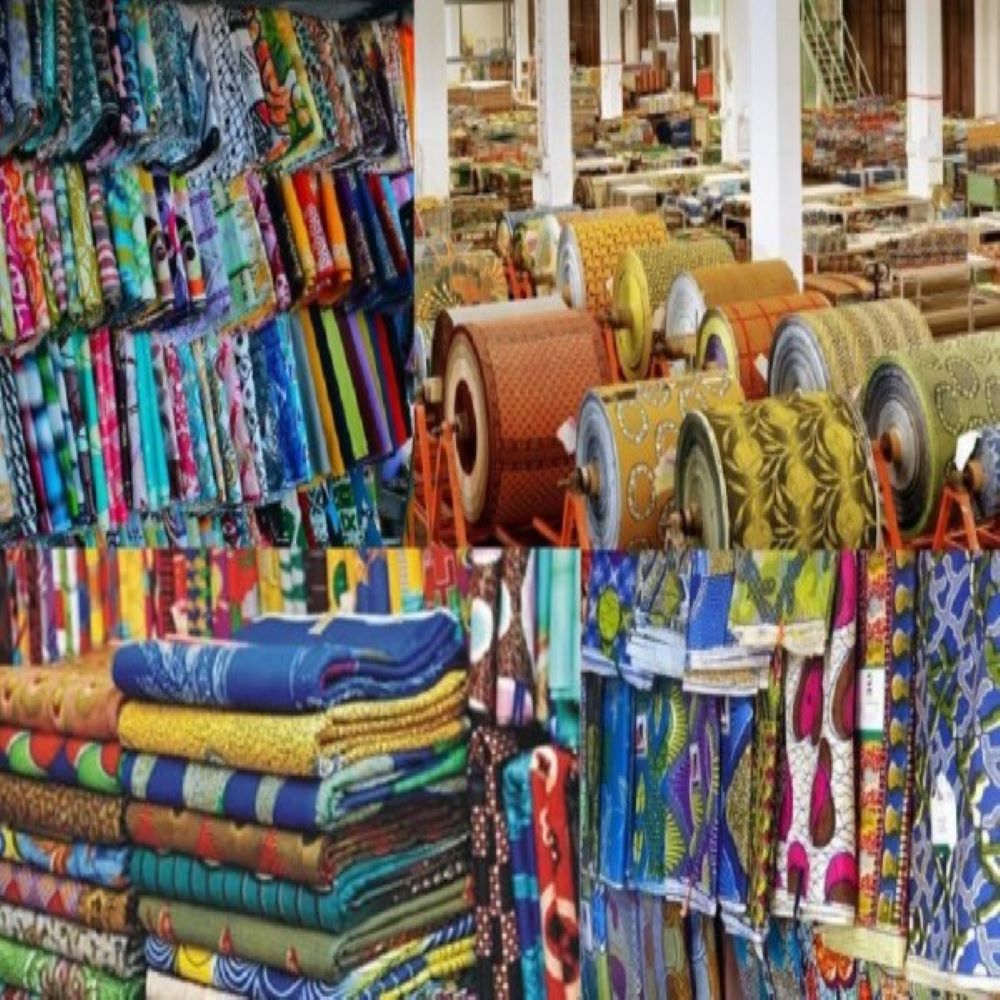
By Mohammed Momoh
Textile industry which once accounted for 15 per cent of the manufacturing sector’s contribution to Nigeria’s Gross Domestic Product (GDP) is in comatose today.
The industry, one of the flourishing sub-sectors of the economy nourished by locally grown cotton, providing direct and indirect employment in hundreds of thousands, is not a shadow of its old self.
Report from the Central Bank of Nigeria (CBN) indicates that today $4 billion is spent yearly on the importation of textile materials, thus depleting the nation’s hard earned foreign reserves.
In the 1980s and 1990s, according to the apex bank, Nigeria was Africa’s largest textile hub with over 180 mills, employing close to over 450,000 people, and contributing over 25 per cent of the workforce in the manufacturing sector.
The industry is now different entirely from what it used to be, and most of the factories have all stopped operations. Only 25 textile factories are operational and at below 20 per cent of their production capacity, and with workforce of less than 20,000 people.
CBN’s governor Godwin Emefiele stated more woes at the official flag-off of the distribution of seeds and other inputs to cotton farmers in Katsina State for the planting season.
He reported that the ginners, spinners, and about one million farmers who were planting cotton as their source of livelihood also lost their jobs.
The industry, according to CBN, was hit by globalization of marketing of textile goods, smuggling of textile goods, unfavourable economic policies, and global-in-Nigeria goods.
High cost of production caused by poor electricity made the local products uncompetitive. High cost of electricity had been responsible for 45 per cent of production cost.
Aside the problem of smuggling of textiles, the poor quality of cotton seeds, lack of access to finance and poor patronage were other challenges.
Mr Ailemhe Odion, a stakeholder, confirmed that the decline of the textile industry was also caused by the hasty accession of Nigeria to the WTO in 1995, in which the country removed protection of the industry.
Nigeria’s new diversification policy propelled by the global glut in the oil market, is pushing forward a lifeline for the textile industry. The industry has the potentialities to contribute to human capacity development, boost revenue generation, create employment and assist to sustain the economy.
The country decided to spur the textile industry through improved techniques of cotton production, exploration of international markets, and re-introduction of measures to regulate the importation of textiles.
The government has therefore floated “Trust Funds and Grants’’ to encourage Nigerians to invest in the textile and allied industry and encourage entrepreneurship initiative.
The government has therefore inaugurated the Textile Revival And Implementation Committee (TRIC) with a specific mandate to revive at least 50 textile companies by 2023. It will also resurrect the cotton belt, identify textile groups, improve cotton production and enhance power supply to textile companies.
TRIC will work with relevant agencies to curb smuggling of textile goods, abolish multiple taxation as well as ensure zero per cent duty for equipment needed by the industry.
Also CBN on July 23, 2020 announced $145 million special mechanism funds for the industry. The money is to be administered by the Bank of industry (BoI) at 4.5 per cent interest rate. The seed fund, which is a one-off intervention, will terminate by December 31, 2025.
Mr Kelvin Amugo, the CBN Director of Financial Policy and Regulation, said the fund is part of the initiatives in the guidelines for the revival pill, tagged “Central Bank of Nigeria Non-Interest Guidelines for Intervention in the Textile Sector”.
Anchor Borrowing Initiative has been floated to drive quality cotton production. CBN is to provide input and finance to farmers to boost cotton cultivation.
Nigeria slumped as the world’s 12th largest cotton producer in 2012 with 602,440 metric tons. According to Financial Derivatives Company, the country became 22nd globally with 291,207 metric tons in 2017.
Revenue from cotton dipped from $570 million in 2010 to $6.07 million in 2017 because of low yields caused by poor quality seeds, pest damage and poor demand, the company reported.
The CBN has launched the distribution of cotton seeds to 150,000 cotton farmers to kick start the programme. It has distributed input such as fertilizers, pesticides, and knapsack sprayers with the target of engaging 300,000 farmers to achieve 450,000 metric tonnes of cotton in 26 states in the next three years.
It has placed order for 6,000 metric tonnes of improved cotton seeds, including Genetically Modified cotton seeds.
No fewer than 20 ginneries in Borno, Gombe, Kano, Katsina, Kebbi, Niger and Zamfara states have been identified to off-take the cotton financed by the apex bank.
President Muhammadu Buhari had also signed an Executive Orders that will encourage patronage of Made in Nigeria goods and services. The government would not allow Nigeria to return to the days of exporting jobs through the importation of clothing items which can be produced locally.
Buhari said that the textile and garment sector is being accorded priority to create millions of jobs.
Mr Isa Aremu, General Secretary, National Union of Textile, Garment and Tailoring Workers of Nigeria (NUTGTWN), is happy with the interventions of CBN and the government, especially on the use of local fabrics by uniform personnel.
Aremu, a notable unionist, said smuggling must be checked to ensure the success of the plan to revive the mills.
The President of Cotton Ginners Association of Nigeria, Mr Salman Abdullahi, said that the intervention to resuscitate sector would spur economic growth, create employment and conserve scarce foreign reserves.
The President, National Union of Textile, Garments and Tailoring Workers (NUTGTWN), Mr Oladele Hunsu, advised the government to bridge the huge infrastructure deficits and cheap imports from Asia to make the intervention meaningful.
Mr Muda Yusuf, the Director-General of Lagos Chambers of Commerce and Industries (LCCI), advised the government to step up power supply before going ahead with the revival strategies.













